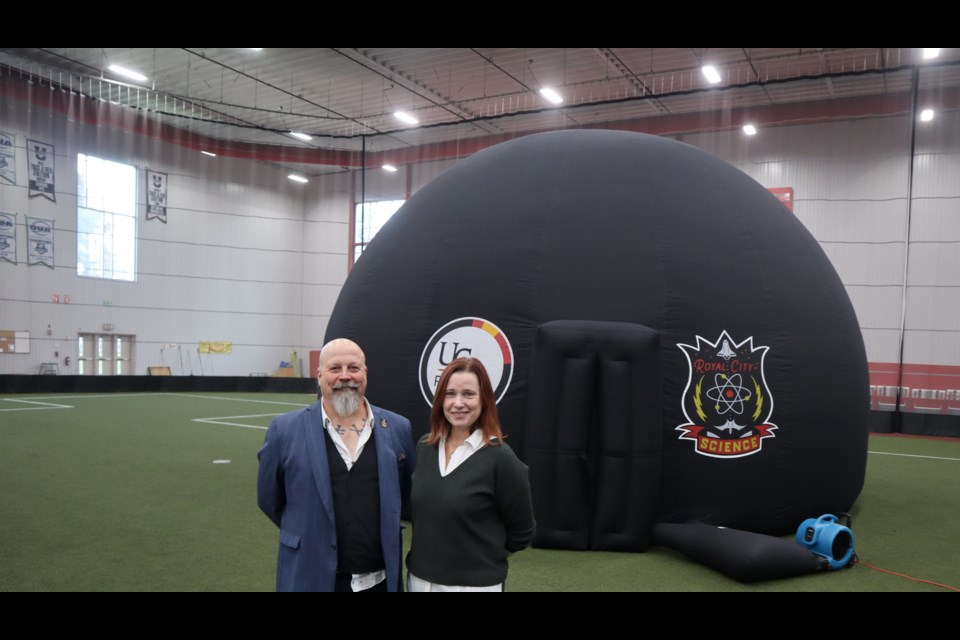Royal City Science and the University of Guelph physics department have a new mobile home: a 15-foot tall mobile planetarium.
It fits in a large duffle bag and a case so it can be wheeled around to different locations.
The planetarium made its first appearance at the U of G Fieldhouse on Monday. A few physics graduate students laid on the turf while staring at the sky while StarLab the company that makes the planetarium worked the equipment projecting different planets.
“So it's a giant black dome … that's inflated with the blower fan there. And the doorway is just a Velcro close you're kind of like a tent, and you walk in and it closes behind you. And then you're in almost darkness. And then you just sit down on the ground and look up and all of a sudden, you're looking at the night sky. And you can teleport almost to different places on the planet,” said Joanne O’Meara, co-founder of Royal City Science and U of G physics professor.
It was made possible through $50,000 donated on behalf of Jim Stevens, a former U of G physics professor who passed away in 2021.
The Canadian Space Agency gave $48,000 as part of a grant.
Royal City Science plans to bring the planetarium to schools to engage students about the wonders of the universe.
On Family Day weekend in 2024 the planetarium will be featured at Royal City Science’s Curiosity Carnival.
“I think fundamentally there's few things that unify people like space exploration, and this idea of what's going on in the universe. I mean I don't know that I've ever met a person who hasn't looked up into the sky at some point and just wondered what's going on,” said Orbax, Royal City Science co-founder and production specialist for physics education content for the U of G department of physics.
With the mobile planetarium it has the ability to go schools’ gymnasiums “and show them more that they can actually see the show things that are beyond just what you can see with the eye and to create programming specifically for them,” said Orbax.
The programming will focus on Canadian contributions to space exploration and Indigenous teachings of the sky, said O’Meara.
Orbax saw a planetarium for the first time when he was young across the border in Detroit and it inspired him to learn more.
“What we can do now is … take this to people who maybe don't have that access otherwise and give them that same experience and perhaps inspire some of them for next generation of just even critical thinkers,” he said.
Royal City Science provides STEM education programming to people in Guelph and are trying to get a science centre built in the city.
“And it's not a Marvel movie. This is stuff based on scientific evidence. This is data. This is real stuff,” Orbax said about the information projected in the planetarium.
“And to have that view that … astronauts get when they go up to the International Space Station and see this is just this tiny little bead in this big black void and to have the opportunity within your own gymnasium to sit on the floor and look up and see that fly back,” said O’Meara.
